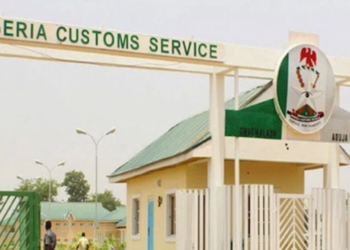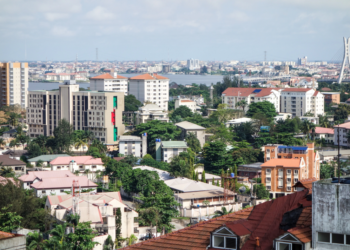The Apapa Command of the Nigerian Customs Service disclosed that it recorded N40.6 billion as Total Free on Board Value for the exports it processed in 2019.
Area Controller of the command, Mohammed Abba-Kura, explained that there has been improvement in the level of compliance with import and export guidelines by port users, as agricultural products such as sesame seeds, cocoa, and processed wood, were part of export commodities processed.

Abba-Kura disclosed that the command recorded success in the fight against smuggling with the seizure of 112 containers of various cargoes, adding that on the issue of trade dispute resolution, the command resolved 95% of the cases brought up, The Nation reported.
“Drugs of various types were also seized. Like 47 of them were drugs that were not registered by National Agency for Food Drug Administration and Control (NAFDAC), so they are not fit for human consumption in Nigeria, but the importers went ahead to import them.
“Then, we seized about 16 containers of tramadol, 18 containers of vegetable oil, 18 containers of tomato paste and we had one container of used tyres, which they declared as used spare parts, we had some containers of rice, two containers of new empty bags of 50kg rice. It was printed with various brand names.
[READ MORE: Over 60,000 litres of petrol seized from smugglers in two months– Customs)]
“There is real improvement and if you compare it to last year you will see what we are talking about, definitely, we cannot close our eyes and allow such to enter the country. They violated the law, so we seized them.
“We resolved more than 95% of the disputes here within and those who feel like they don’t believe in our argument have the right to escalate upstairs or to headquarters. Most of those that even went higher are coming back to agree in our own favour,” he said.
Meanwhile, speaking on the impact of ongoing border closure on port activities, Abba-Kura stated that there were lots of advantages because some of the country’s neighbours were not following the best practices in international trade. He added that cargo goods or consignment coming into the country had met the standard.

He explained that the unwholesome practice usually employed by unscrupulous traders was to unload the containers then put the loads into trucks and bring them into Nigeria, especially from Benin Republic. According to him, this is against the principles of transit as goods must come in its original form.
“My advice is that they should be compliant in their declarations and we are going to carry over most of the policies or strategies that we adopted in 2019. We’ve laid a very good foundation, so we are going to continue on that. Like the open door policy, we attend to complaints as at when due. We give importers or their representatives their rights according to the rules and regulations,” Abba-Kura said.
About Free on Board (FoB): It is a shipment term used to indicate whether the seller or the buyer is liable for goods that are damaged or destroyed during shipping.





















